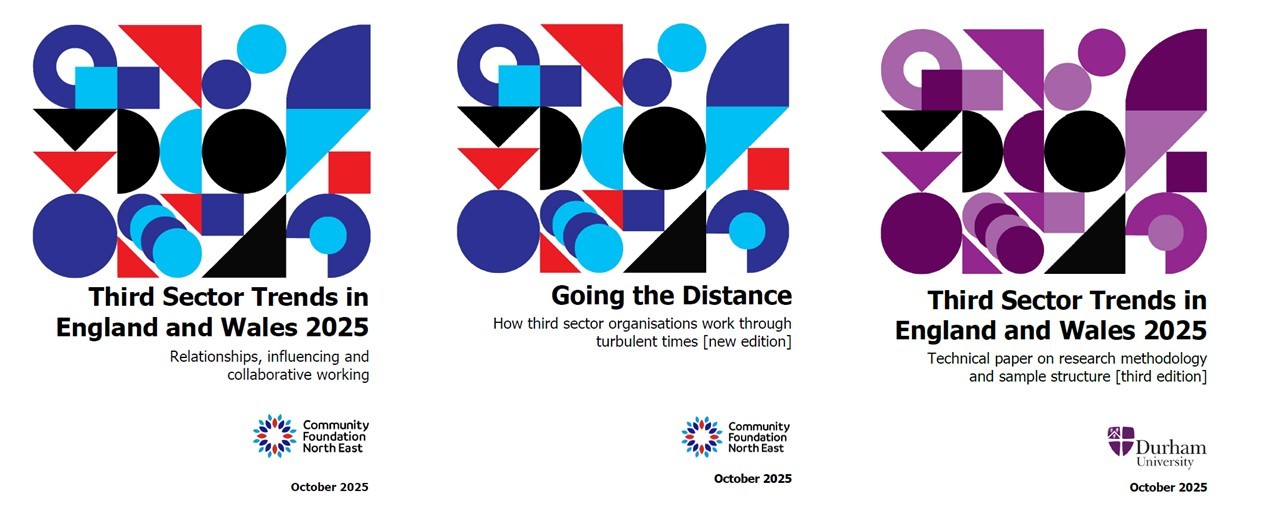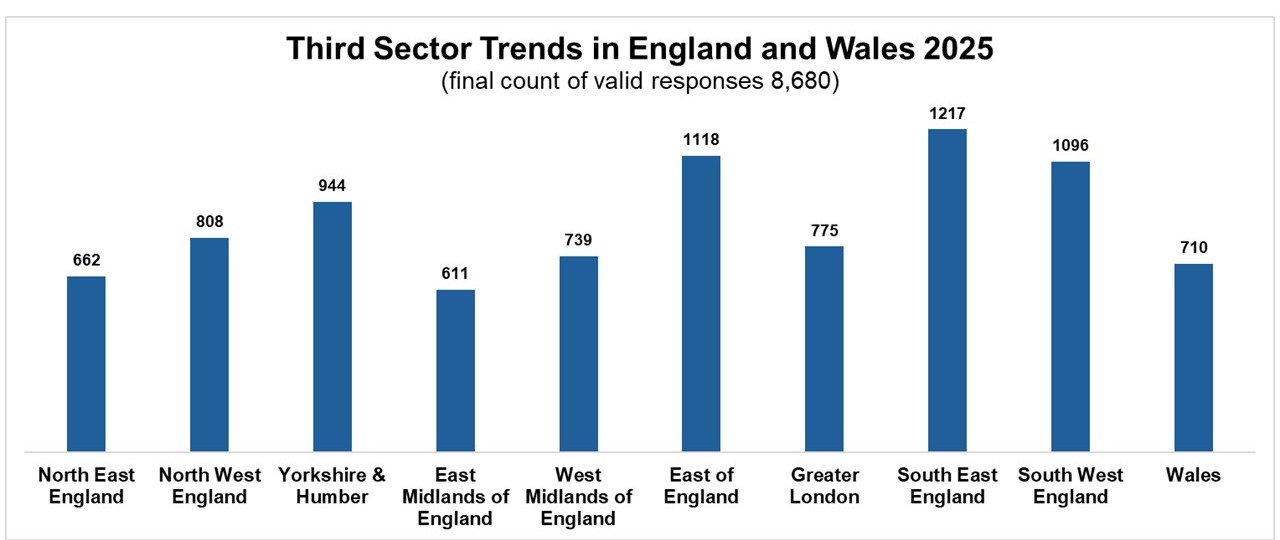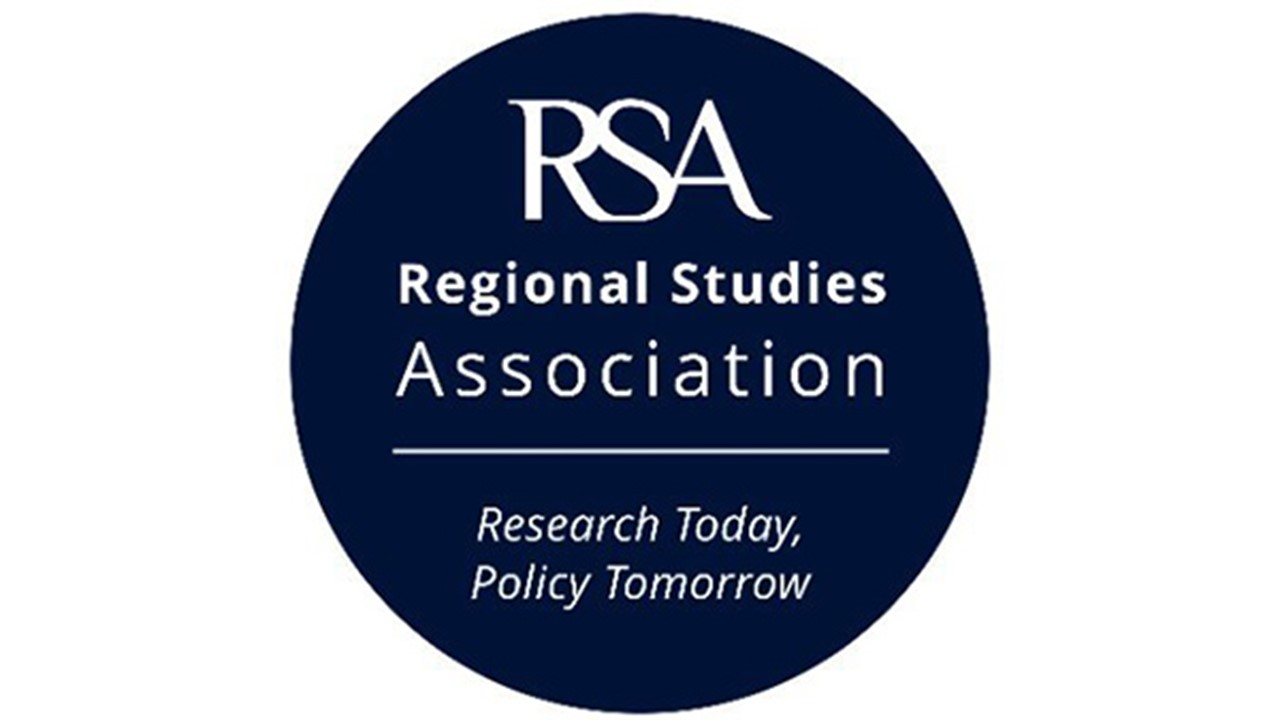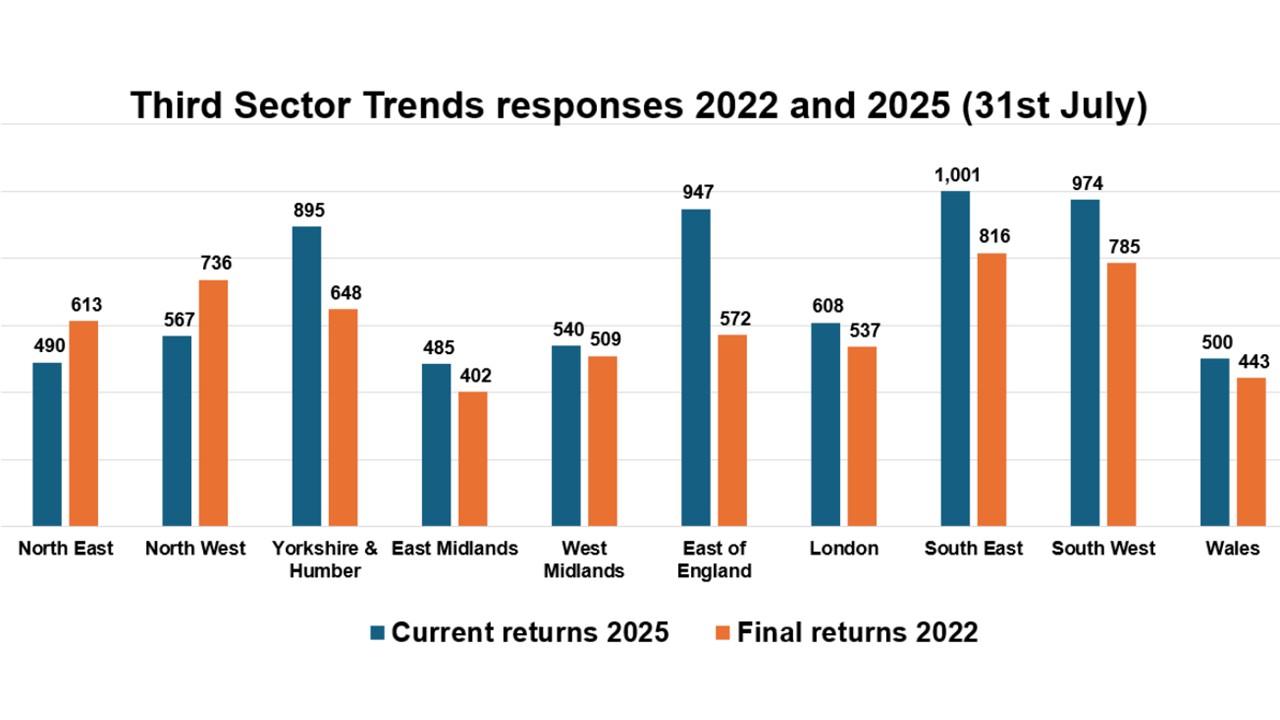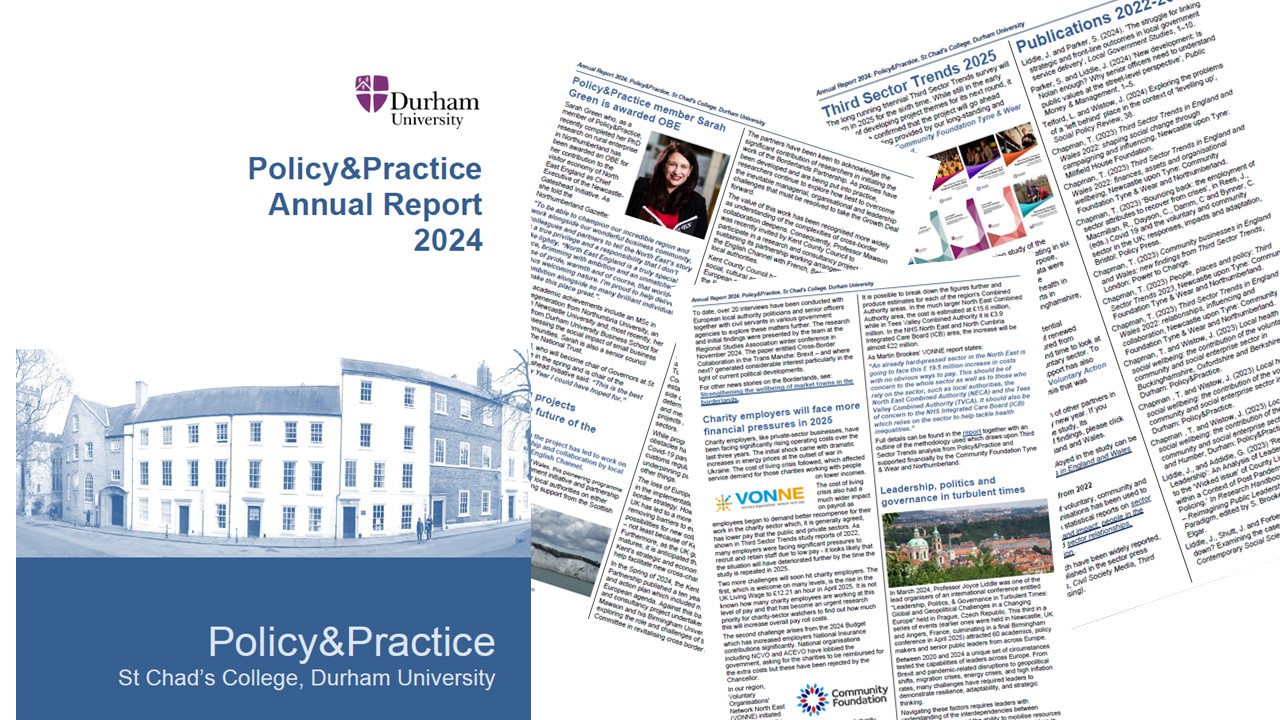The third sector is a force to be reckoned with in England and Wales as it commands enormous resources of people energy to deploy. With the equivalent of about 1.3m full-time staff and regular volunteers at their disposal, voluntary organisations attend to a wide range of social, economic and environmental issues.
That does not mean the third sector is a single-minded entity, which is logically structured and systematically directed to achieve shared goals. On the contrary, it is pluralistic in structure and particularistic in its objectives – serving the needs of people or places according to the passions of those who lead and work within each and every voluntary organisation.
The second of a series of five reports from Third Sector Trends in England and Wales 2025 looks at the scale of impact that the third sector delivers through its work and makes plausible estimates on the value of that work. And because this is a longitudinal study, running back to 2010, it demonstrates how the third sector has sustained productive energy over the years.
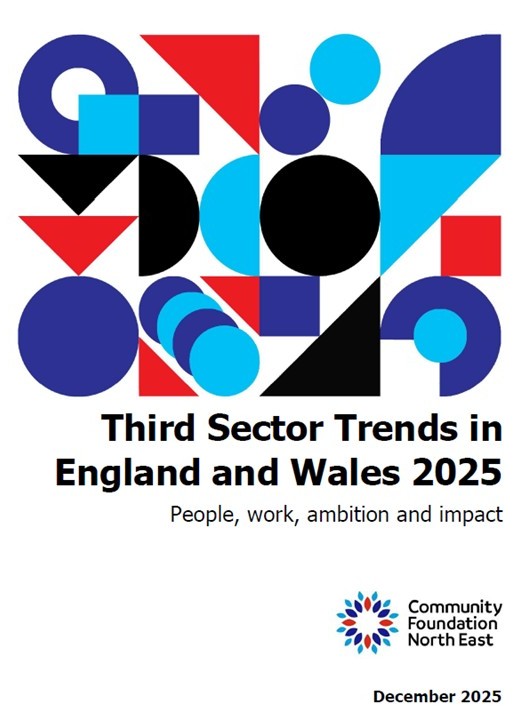
That has not always been an easy task. In the lifetime of this research project, third sector leaders have had to deal with uncertainties that have come their way which were completely beyond their control. That series of challenges ranged from the 2008 global economic crash, almost a decade of government austerity policies, Brexit, the Coronavirus pandemic and now a ‘cost of living crisis’.
Often, the sector press carries news stories from doom-laden commentators or gloomy research report findings prophesising the imminent demise of the third sector. And yet, unenviable though their tasks may have been at times, this report will show that a majority of voluntary organisations are still led by people who are remarkably ambitious and optimistic.
Levels of confidence and vitality amongst leaders varies because they get excited and worried about different issues – depending upon the kinds of organisations they run or where they are located. The characteristics of leaders themselves is varied and continually changing. So this report looks at that issue too – and asks whether experiences of leadership vary depending upon spatial and organisational factors – and according to the biographical and personal characteristics of leaders.
Challenging though leadership can be, its experience is not shown to be one of relentless drudgery, fear or crisis management. Instead, this research report shows that leaders have the energy and ambition to tackle issues that are important to their organisations.
That is not to say that everything in the garden is lovely. Since the pandemic, many voluntary organisations have continued to face difficulties in holding on to or recruiting new employees in challenging labour market conditions. Support from regular volunteers during the pandemic declined and the evidence presented here shows that while there has been a measure of recovery – nearly two fifths (38%) of voluntary organisations have yet to get back to the levels of regular volunteer support they once enjoyed.
The clinical tone adopted to report findings about the overall wellbeing of the third sector, may jar with readers whose voluntary organisations are currently facing serious difficulties. But reports must adopt such a tone so as to alert those who work with or invest in the third sector can reach a clearer understanding of why some are struggling while others are thriving.
While life in the third sector can be challenging and sometimes the pressure feels relentless, that does not mean that the people who lead organisations lose their verve. The confidence and ambition of most organisational leaders remains high. This is a vital story to tell if the third sector is to renew itself by continually bringing in new people to lend it support, to work, to regularly volunteer and lead.
The report is available here: Third Sector Trends in England and Wales – people, work, ambition and impact (December 2025)
A shorter blog is also available here: TonyChapmanBlog
News stories on this report can be found here from: Civil Society Media, Charity Times and Third Sector



